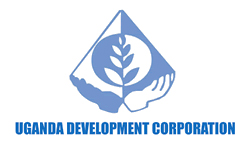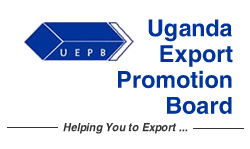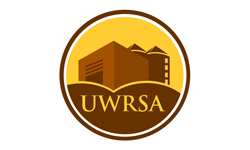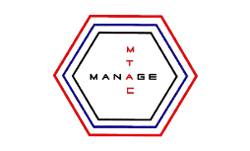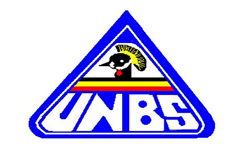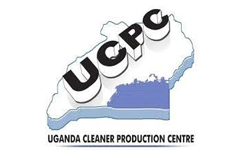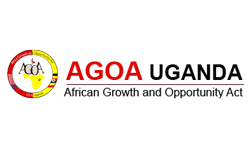Governance Structures
The EIF has global Governance structures for the programme and these relate to the specific programme funded projects. At the top Global level is The EIF Working Group composed of all the Members of the World Trade Organisation and to which reports the EIF Board. The Board is composed of three representatives each for the Donors and LDCs and the Six IF Core Agencies. The Working Group is currently chaired by a Donor while the Board is Chaired by an LDC. Uganda represents English Speaking African LDCs in the Board, for a tenure of two years. Uganda has put in place the various local governance structures that are necessary in the implementation of the EIF programs and these constitute the national implementation arrangements.
The National Implementation Arrangements (NIA): Indigenous National Implementation Arrangements have been put in place to address the functions that the NIA entities under the EIF are meant to cover to respond to LDCs trade integration challenges and these include:
The IF Steering Committee/ CICS: In order to avoid creation of parallel structures and overlap, and to carry out institutional IF mainstreaming, the high level-CICS National Steering Committee (NSC) has been assigned to also serve as the IF NSC. The CICS/IF NSC is co-chaired by the Permanent Secretary (PS) MFPED and the PS of MTTI. This is the overall policy setting organ of the IF in Uganda. The placement of the IF matters within the ambit of CICS also ensures that the IF agenda receives the necessary high level attention.
A subcommittee of the NSC(CICS) serves as the management committee for this project, coordinated and serviced by the National IF Secretariat and the NIU and approves work plans, budgets and projects within the IF program. It ensures effective coordination and is responsible for overall monitoring at the political level of the IF process in Uganda and of the various projects resulting from the implementation of the DTIS action matrix.
The TRACE 11 Management Committee: This is a committee of high level officials selected from key institutions to provide specific technical policy oversight on the IF process and in particular trade mainstreaming in the sectors and institutions and/ sectors they represent including mainstreaming into development partners’ programs in Uganda. This committee, operating on behalf of the NSC ensures that TRACE 11 is on track. In particular the Management Committee is responsible for:
- Overall policy and technical oversight and supervision of the National IF Secretariat and National Implementation Unit (NIU)
- Receiving, consider and approve proposals, work plans and budgets prepared by the National IF Secretariat and the NIU:
- Giving advice to the IF Secretariat and the NIU on matters concerning best practices in the management of TRACE 11 and of the IF
- Monitoring ongoing projects under the EIF program
- Considering and approval of quarterly and other operational reports of the project
- Preparing and presenting a quarterly report to the CICS Steering Committee
- Other assignments as may be directed by the Permanent Secretary, MTTI or by the CICS Steering Committee.
There is need to keep the members of the governing organs of the project and of the NIU informed of the developments in the IF, trade and AfT agendas as this will be crucial for the national trade development agenda to remain focused and coordinated and also receive additional resources as necessary.
The National IF Secretariat: The work of the IF in Uganda is coordinated by the National IF Secretariat that is headed by the IF Focal Point. The National Focal Point is a senior official of the department responsible for trade in the MTTI and is seconded on a full time basis to the IF program. The National Focal Point supervises the operations of the Secretariat and the Larger National Implementation Unit
The National Implementation Unit (NIU): This is a technical committee that operates under the coordination and general guidance of the National Focal Point and is serviced by the National IF Secretariat. It consists of individual drawn from key ministries/ sectors including: Finance, Planning, Trade, Tourism, Cooperatives, Industry, Information and Communication Technology, Local Government & Agriculture, Animal Industry & Fisheries. The private sector also seconds representatives to the NIU to ensure that private sector interests are taken into consideration in implementing the IF initiatives in the country.
The NIU members operate as the sectoral champions in the IF processes and help monitor the implementation of both the Tier 1 and Tier 2 projects. These individuals work especially with the relevant partners to advocate for and assist in the inclusion of a trade integration strategy and its priorities in their respective sectors and therefore the Poverty Reduction Strategy Paper (PRSP) and other national development strategies. (The NIU operates on an ad hoc basis within the hierarchy of the IF program)
The Donor Facilitator (DF): The DF is identified from among the development partners represented in Uganda. The European Union (EU) currently serves as the DF to assist the IF process in Uganda by enlisting and coordinating donor responses to the DTIS Action Matrix. More generally, the DF through the Private Sector Donor Group (PSDG) helps in mainstreaming trade into the donor programming so as to harmonize donor and government priorities for timely implementation of the Action Matrix
Other Mechanisms: On a wider governmental level TRACE II taps into existing mechanisms in the realization of its objectives. The technical heads of ministries (Permanent Secretaries) meet on a regular- monthly- basis to exchange views on matters of policy and ensure coordination across government ministries and departments. Matters affecting trade and trade policy are tabled as the need arises. Also MTTI has a number of high level representatives on the Presidential Investment Round Table (PIRT), a forum under the chairmanship of the President that has a wide mandate on issues of the economy and trade which meets every three months. Other key ministries and departments and the private sector are represented at PIRT therefore ensuring a measure of coordination across government entities and the entire economy on various related matters.

